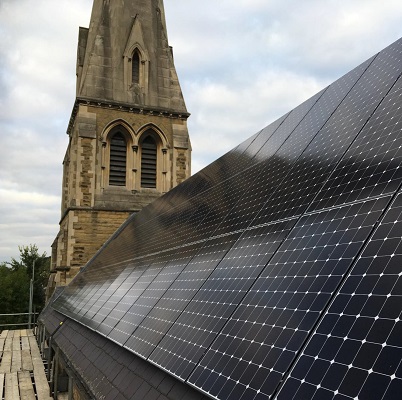06/11/2020
Detail was shared with General Synod members today as papers were published for the forthcoming meeting of General Synod, the first full meeting of the Synod to be held remotely.
Today’s environmental publications follow a February 2020 motion setting the Church a target of cutting its carbon emissions year-on-year to reach Net Zero emissions by 2030.
Among other Agenda items, Synod will also debate the recent IICSA report endorsing a motion to urgently implement its recommendations, a response to the Covid-19 pandemic, and the Archbishops’ Council budget and proposals for apportionment for 2021.
In legislative business, the Cathedrals Measure will receive its final drafting and approval and there will also be a number of items of Safeguarding legislation as the Church continues its work to strengthen its procedures in this area.
First official remote synod
In response to the challenges presented by the ongoing Covid-19 pandemic, special changes to Synod rules were approved in October enabling a full meeting to take place online.
This will be the first such official meeting of the Synod to take place online, over three days between Monday 23rd and Wednesday 25th November.
Dioceses and cathedrals consult on net-zero
Despite the unprecedented challenges of Covid-19 during the past nine months, the vast majority of dioceses and cathedrals have responded to a consultation to shape a definition and scoping of net-zero. This has been sent to General Synod members today for information ahead of its November meeting.
Of 35 dioceses and 23 cathedrals that replied, 81% of consultees agreed fully with the definition as now drafted (or with minor variations). Of those who did not fully agree, half still expressed a desire that it should go further.
Among the key details from the papers:
-
The current carbon footprint of the Church of England is between 600k and 1000k tCO2e (metric tonnes of carbon dioxide) per year.
-
More than 80 per cent of the average church’s energy use goes on heating.
-
A clear definition of what achieving net-zero carbon would look like. This includes all carbon emissions in churches, church halls, offices, Royal Peculiars, and Theological Education Institutions among other examples of buildings that are included.
Revd Professor Martin Gainsborough, who moved the 2030 amendment, said that he was “hugely impressed” by the way in which the Environment Working Group has been working since the momentous vote in February.
“The definition of what is included for our net-zero carbon target seems the right one. It is also widely supported, as the consultation process relating to it shows,” he continued.
“It is now absolutely critical that the whole Church commits to this agenda. Of course, aspects of it will be challenging but I am convinced that if we work systematically and work together we can pull this off. What an achievement and what a legacy that would be.”
The Bishop of Salisbury, Nicholas Holtam, the Church of England’s lead bishop for environmental affairs, welcomed the publication of the Synod papers.
He said: “In the months since Synod set its 2030 target for net-zero, despite the unprecedented challenges of Covid-19, parishes, dioceses and cathedrals have demonstrated their urgency by completing the energy footprint tool and participating in a consultation on the scope of net-zero.
“While reaching our target remains a huge challenge and will require prayer and concerted and sustained action, this work moves us closer to having a reliable baseline for our current carbon impacts and a roadmap to achieving net-zero.”
The Church has also rolled out the Energy Footprint Tool, and since April 2020 (following the 2030 target introduction in February) the tool has seen 4,500 churches formally submitting their data or nearly a third of parishes in England. A further 1,500 churches tried the tool but did not submit their data.
The Environmental Working Group will next report back to General Synod in 2022, at which time a detailed roadmap will be reviewed.
Work will continue at all levels in the meantime with a national programme of church energy audits, renewable electricity tariffs through parish buying, ARocha’s Eco Diocese programme, events for Climate Sunday and a series of net-zero carbon webinars which are free for parishes.
Notes
- Read the papers.
- Synod can be followed online via our live stream.
